Field diary by June Kunugi, UNICEF Regional Director for East Asia and the Pacific.
First published December 2, 2024 by UNICEF

Children have only one chance at childhood.
When you’re a child with a disability in a country wracked by conflict, that childhood will be marked by barriers. Barriers to safety, to services, to support.
The air is crisp when I step off the ferry to Dala, in Myanmar. Walking through this township, nestled along the banks of the Yangon River and known for many years as one of the poorest areas of the city, the impact of the current crisis in Myanmar is palpable.
Families here are clearly grappling with the harsh realities of everyday survival. The ongoing insecurity and economic shocks have devastated their livelihoods. Health care, education and social safety nets have been disrupted.
Among those families who are struggling the most are those with children living with disabilities.
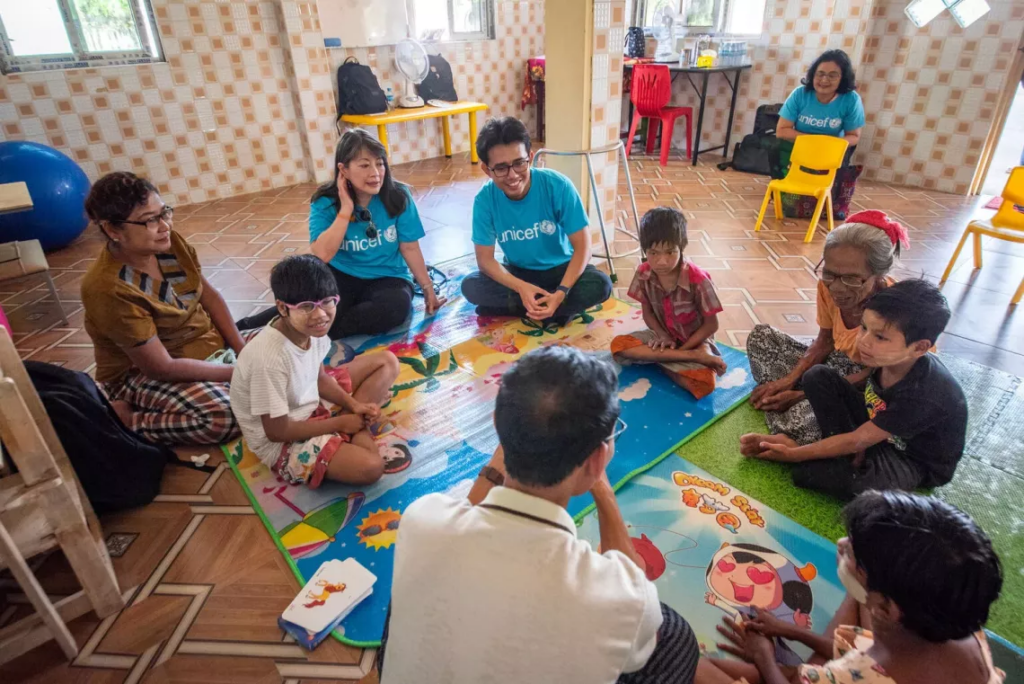
A community in need
The signs of a community in need give way to peals of laughter as I step into the day care and physiotherapy centre run by New Humanity Myanmar and UNICEF, with a specialized therapist from the Don Carlo Gnocchi Foundation and in-kind support from the local community, showing the value and power of partnerships for vulnerable children.
A learning session is underway, where children with disabilities are working on communication skills, accompanied by their loving caregivers. Therapists are guiding children through exercises, and hope and joy fill the air. The centre is part of our I.C.A.R.E. programme, which combines financial assistance with rehabilitation services for children with disabilities.
One mother turns to me and says, “This place has given us hope. We are learning how to help our children every day.”
Meeting families
I notice the radiant smile of six-year-old Wint Yamone Oo, which lights up the room. After the session, her grandmother invites me to their home. Wint lives with multiple disabilities affecting her speech and mobility and has been participating in the programme for nine months now, attending the centre and benefiting from the disability cash grant.
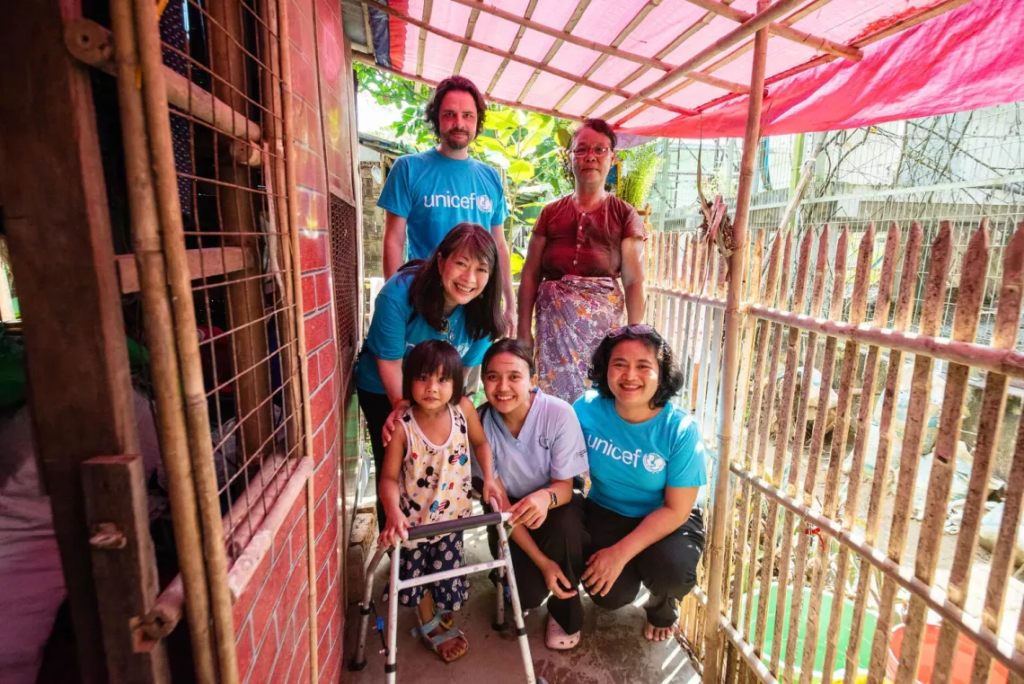
“Before this support, we struggled to provide for her needs,” her grandmother says, with Wint on her lap. “Now, with UNICEF cash transfers and her new walker and therapy sessions, we see progress every day.”
After our chat, Wint takes some tentative steps with her walker and her grandmother beams with pride.
Nearby, I meet Myat Phone Khant, a young boy living with both visual and physical disabilities. Myat’s mother is a widow, caring for five children after her husband passed away. He shows me around his neighbourhood, walking with a walker and special shoes provided by the UNICEF-supported programme.
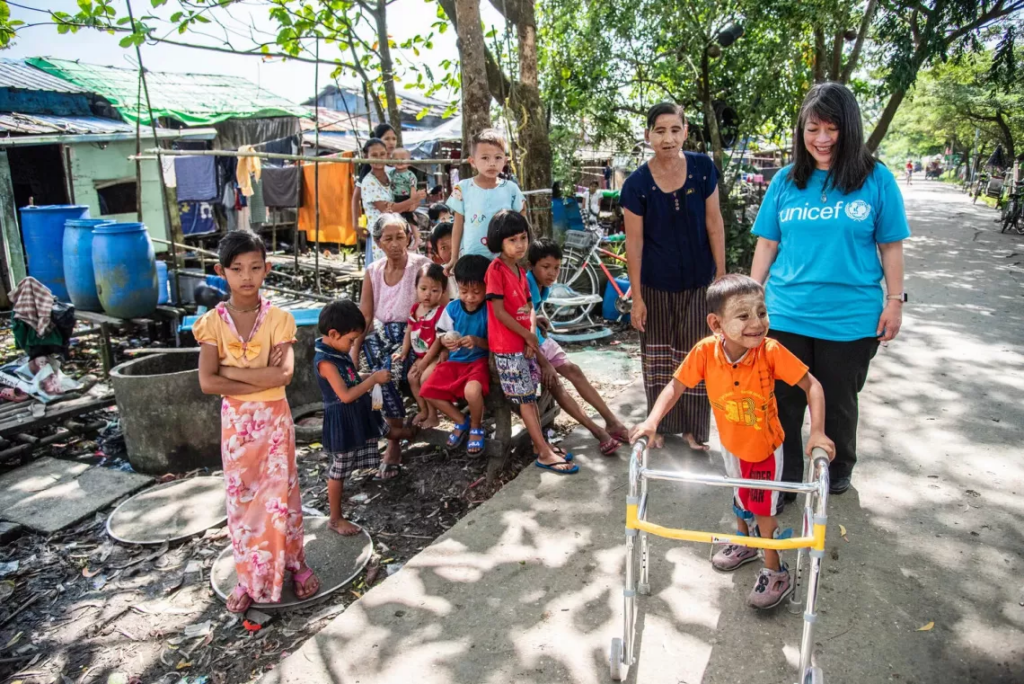
His mother expresses deep gratitude for the support they have received through the programme. “The assistive devices and rehabilitation sessions have changed our lives,” she says.
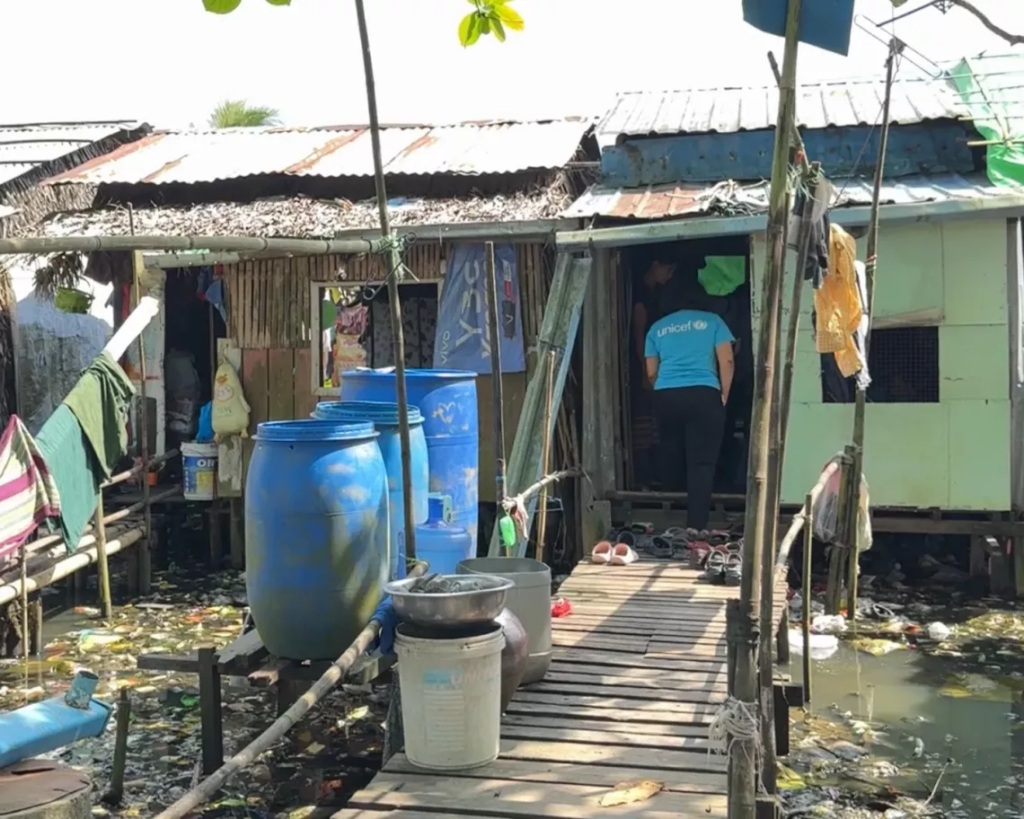

As I board the ferry back to Yangon, the determination of Wint, Myat and many other children stays with me. The day has been a profound reminder of why we do what we do at UNICEF.
Families everywhere in Myanmar are already struggling with economic hardship, limited access to food and a strained health-care system due to conflict and instability. In a place like Dala, our integrated support programme is more than just assistance – it’s a lifeline for families caring for children with disabilities. From the cash transfers to help families buy food and medicine, to the walking frames that give children mobility, every bit of support is crucial.
This International Day of Persons with Disabilities serves as a poignant reminder of the urgent need to continue to advocate for inclusive programming in conflict settings. Together with our partners and dedicated caregivers on the ground, we can strive to create a world where no child is left behind – a world where every child can thrive, even amid adversity and challenges.
June Kunugi is the UNICEF Regional Director for East Asia and the Pacific.
Related Articles
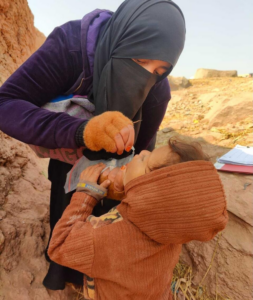
Moving Toward the Finish Line in the Polio Fight
A nationwide immunization campaign backed by UNICEF and partners kicked off in February in Pakistan, one of the last two countries where wild poliovirus remains endemic. Efforts are focused on reaching every unvaccinated child under 5.

Reaching Every Child: Community-Level Vaccination in El Salvador
Through UNICEF-supported community health workers like Glenda Mejía, lifesaving vaccines reach El Salvador’s most remote families. Armed with a cooler bag and unwavering dedication, she’s transforming healthcare access, one child at a time.

In Mozambique’s Zambezia province, mothers go the extra mile to get kids protected with malaria vaccines
Mozambique introduced the malaria vaccine in its worst-hit province on 5 August 2024.
